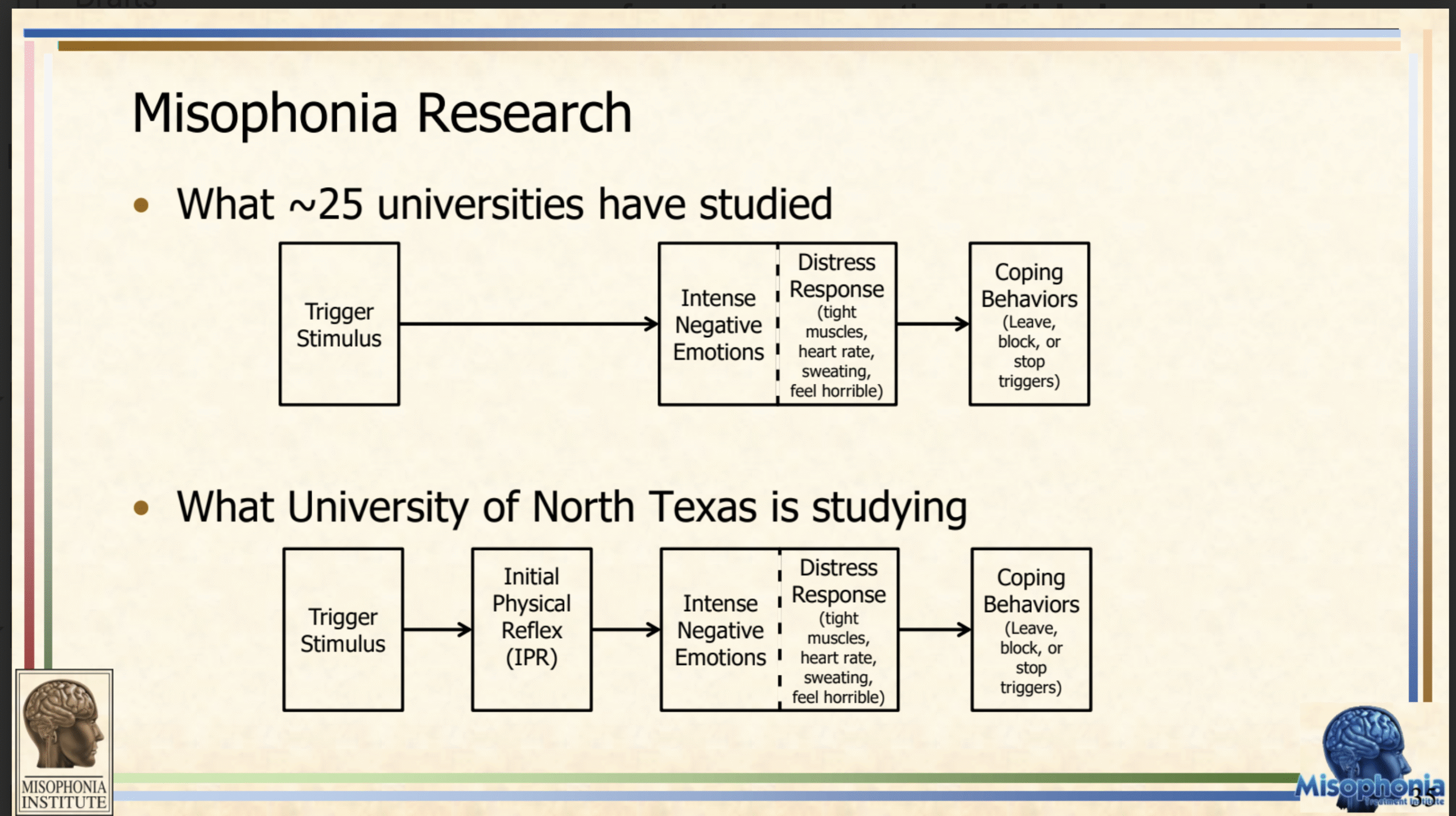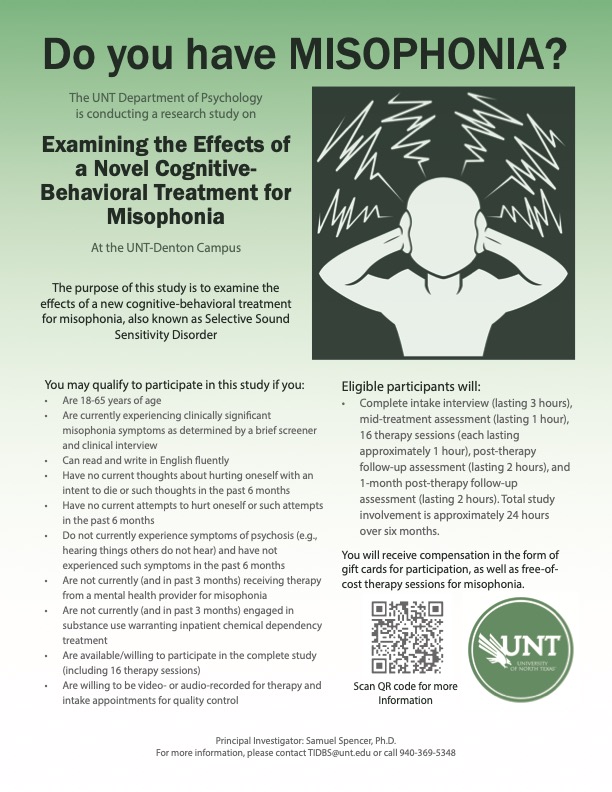This research study is the first to incorporate our fundamental understanding of misophonia as an acquired reflex response.
Research Study: 2025-2026
(Denton, Texas–Nov. 11, 2025) – With funding from The Misophonia Institute, Dr. Samuel Spencer at the University of North Texas (UNT) Denton Campus has launched a groundbreaking research study, “Examining the Effects of a Novel Cognitive-Behavioral Treatment for Misophonia.” Approved by UNT’s institutional review board in Summer 2025, the study began recruiting participants in October and is expected to run through May 2026. This project marks a significant step forward in exploring effective treatments for adults living with misophonia.
As described on the Misophonia Institute’s website, misophonia is a condition characterized by a severe sensitivity to specific soft sounds (such as chewing or tapping) and certain visual stimuli. These triggers can provoke intense emotional reactions, including anger or anxiety, that significantly affect daily life.
Dr. Spencer, assistant professor of clinical psychology at UNT, in collaboration with Tom Dozier at the Misophonia Institute, is leading a small clinical trial to evaluate a novel cognitive-behavioral therapy (CBT) treatment for adults with misophonia.
“Grounded in a counterconditioning approach to misophonia as a conditioned aversive reflex disorder, this treatment aims to reduce suffering and improve the lives of individuals affected,” Dr. Spencer said. “Data collection is underway, the intervention has been refined and is ready for delivery, and recruitment of potential participants has greatly exceeded our expectations. We look forward to preliminary results in 2026 and plan to conduct larger studies as funding allows.”
Study participants aged 18-65 will complete 16 free therapy sessions and follow-up assessments over approximately six months. The results will help determine whether targeted CBT interventions can offer meaningful relief and improve the quality of life for those affected.
“This research study is the first to incorporate our fundamental understanding of misophonia as an acquired reflex response,” Dozier stated. “It is critical to demonstrate how misophonia reflexes can be reduced—or even eliminated—through counterconditioning.”
For more information about the Misophonia Institute, visit https://misophoniainstitute.org/. To receive updates on this research project, sign up for the newsletter at the bottom of the home page.
Founded in 2015, the Misophonia Institute is a non-profit organization dedicated to providing accurate information about misophonia—including management and treatment options—and to fostering collaboration among researchers and clinicians to advance understanding and improve treatment approaches.


